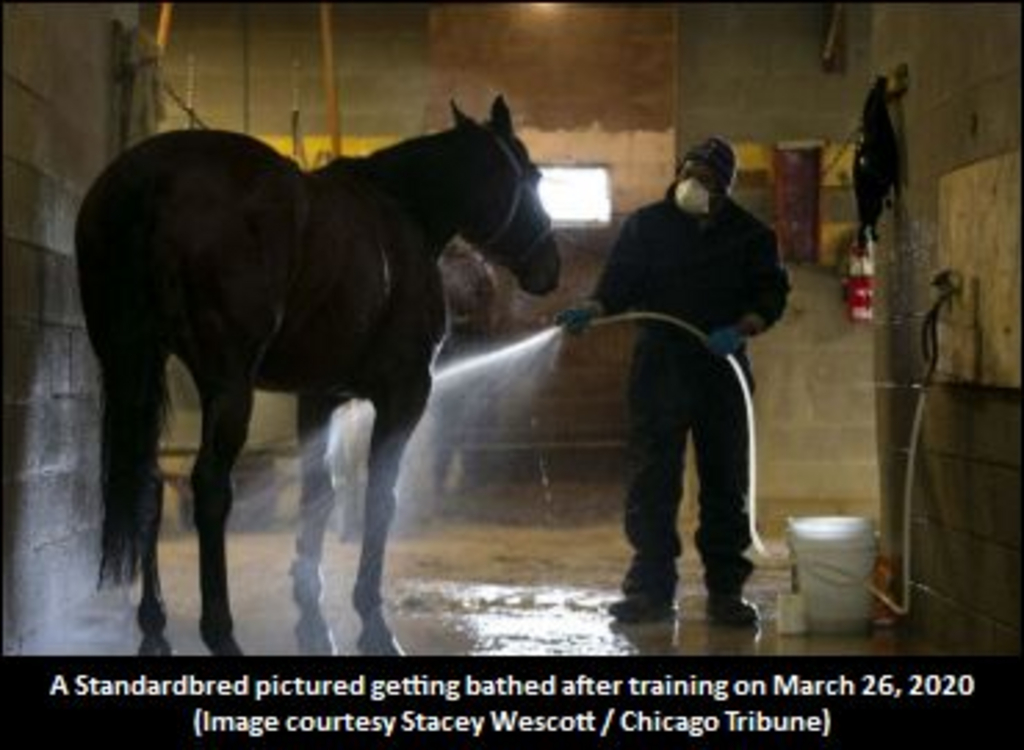
The states and provinces may differ, but the reality of the COVID-19 pandemic on the North American harness racing industry – despite California, at this stage – is the same: The lean times are here, and the desperate times, which are right around the corner, will be next unless something changes.
The Chicago Tribune has focused its spotlight on Illinois’ Hawthorne Race Course, which has seen both its Standardbred and Thoroughbred horsepeople directly impacted by the immediate fallout of the COVID-19 pandemic.
No racing means no chance for income. No chance for income – which many estimate to be $1,500 a month per horse south of the border – means that losses mount quickly. The bills for racehorses don’t stop just because racing stops. Being able to mitigate a relatively short break in racing is one thing, but being able to financially persevere through an extended racing postponement is another animal all together.
Pandemic-640-01.jpg)
Hosea Williams, who has six head in training at Hawthorne, explained to the Chicago Tribune that he thinks he, personally, will be able to endure a short racing hiatus. Williams stated that he has a small payroll, but there are people in racing that will not be OK if the current situation continues.
While speaking with the Chicago Tribune, Illinois horseman Gerald Hansen cut right to the point. “If you’ve got a movie theater, you shut it down and put a closed sign in the window. With horses, they’ve got to eat every day. They’ve got to be worked every day. If this thing goes more than a month, we’re in deep trouble,” he said.
In terms of the equine industry, the fallout from the pandemic doesn’t fall squarely on the shoulders of the racing industry, though. Tony Troyer, who operates a carriage business, is feeling the pinch in light of upcoming events being cancelled. He told the Chicago Tribune that, “At some point this is all going to turn around. We just don’t know where the end of the tunnel is yet because we’re still right smack in the middle.”
Pandemic-640-02.jpg)
Reiterating what his fellow horsepeople stated, Tony Somone of the Illinois Harness Horsemen’s Association stated that, “As this goes on, two weeks, three weeks, we could be OK. But as it hits four weeks, five weeks, six weeks, we’re going to see some horsemen struggle to feed themselves and feed their horses.”
To read the Chicago Tribune article in its entirety, click here.
(With files from the Chicago Tribune)

